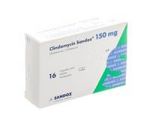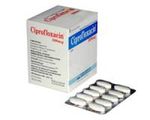Bacterial infections can occur anywhere throughout the body. Most bacterial infections clear up on their own because the body’s immune system kills bacteria. However, sometimes bacterial infections can get a little out of control and overwhelm your immune system. In this case the infection should be treated with antibiotics.

Bacterial infections
Treatments
- All treatments
- Prescription medicines
- Non-prescription medicines
- Relevance
- Name A-Z
- Name Z-A
- Price low-high
- Price high-low
How does Dokteronline work?
At Dokteronline, you can get expert advice from doctors quickly, without the hassle of visiting your GP’s surgery. Take care of your health with reliable treatments and information from the comfort of your home.
Select your preferred treatment
The doctor will review your medical request
The pharmacy will ensure your medication is delivered to your doorstep
What are the symptoms?
Bacterial infections can occur throughout the body leading to many different problems, depending on the site of infection. The most common bacterial infections include:
- Pneumonia (pain, fever, coughing, general feeling of ill health);
- Middle ear infection (earache, possibly runny ear);
- Bladder infection (pain during urination, frequent urge to urinate, stomach pain);
- Skin infections (red, swollen skin, often accompanied by itching or pain);
- Rheumatoid arthritis (swollen, stiff, painful joints);
- Gastroenteritis (stomach ache, diarrhea);
- Eye infection (red eye, possibly accompanied by pain or discharge).
Treatments for bacterial infections
Bacterial infections can be treated with antibiotics. Antibiotics are available in various forms such as tablets, capsules and oral solution. There are also antibacterial and antiviral drops that can be used for eye or ear infections, as well as anti-inflammatory creams for topical use. It is important to finish the medication completely. If you take only half of the medication prescribed, it is likely that not all bacteria in your system will be killed, which can cause the infection to return.
Frequently asked questions
What are the symptoms of a bacterial infection?
Possible symptoms include nausea, fever, headache or exhaustion, and sometimes dehydration.
How long does a bacterial infection last?
An infection can last anything from a few days to several months. Sometimes it clears up on its own, but in many cases treatment with antibiotics or other medication is required.



